Journey to the Job
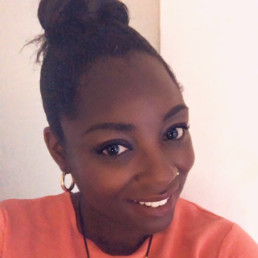
Written by Azuraye Williams
Year 6 Teacher, Science, PE, Diversity and Inclusion Lead.
Initial Thoughts
It can be so hard looking for a new job as a black or brown teacher. Your first thought might be to look at the teaching staff of the school and see if there are any other people of colour working there. With the recent statistics that have been made wide news, you will understand that it can sometimes be quite hard to find such a place.
Once you have searched, you may have a few of the following questions to think about:
- Is the school ‘ready’ to have a black or brown teacher there?
- Am I ready to work somewhere that I will be ‘culturally alone’?
- How will the school deal with anything towards race, identity, racism and culture?
- How will they respond to me if I talk about something I feel uncomfortable with?
- Will the school support my progression or will I just be there to ‘tick a box’?
These questions will be flowing through the minds of people of colour before they even think about if they really want to apply for the job. Sometimes this process alone is enough to talk you out of even applying.
The Process
The next thought is the writing process. You may worry that to even be in with a chance of an interview your letter has to stand out even more – especially if your name is of a cultural background- as the schools may have already shown that it does not openly employ black or brown people.
Then you think about the interview with thoughts such as:
How can I seem as though I can ‘fit in’ to the school, while also wanting to embrace my own true self?
Or,
Will I see someone who looks like me on the interview panel?
What Now
Now although I say this, I am not speaking for all black and brown people or indeed about every interview. I just wanted to speak my own truth to share experiences and conversations I have had with other black and brown educators.
The reason I say this is because although it is important to teach the children about different people and cultures, to truly bring the teaching world alight for people of colour, it starts at the top. Employing people of colour and actually listening to them when they make suggestions or point out something in school rather than just feeling it is ‘the right thing to do’ to tick a box or ‘look good’ from the outside.
It isn’t enough for schools to put a plaque up and a heading on their website to say they are anti-racist if their whole culture and ethos shows the opposite. Employing and learning about other cultures is one thing but truly allowing eyes, hearts and minds to be challenged in their biases and allowing the discomfort this may bring to elicit deeper change is what is really needed in schools.
So many black and brown teachers enter into this system as enthusiastic, knowledgeable and hard working individuals and yet they leave the profession years later being down-trodden, overlooked, misrepresented and sometimes (more often than many would like to say) mistreated.
Remember, this is a whole school approach and it is everyone’s responsibility to develop this across school. Higher leaders and educators have the capacity to make these real changes as without the support and backing from those higher up in the hierarchy, no amount of diversity lessons will make any real difference to the school culture.
Decade of Diversity: a cross-industry coalition of organisations and individuals supporting schools to increase diversity and inclusivity
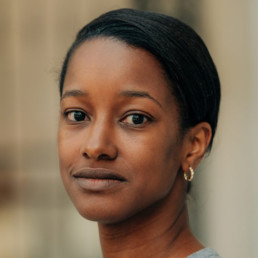
Written by Temi Akindele Barker
Inclusion Labs offers a custom programme for schools, grounded in research and best practice, but most importantly on the lived experience of students and families, particularly those from underrepresented groups.
During last year’s global BLM protests, I watched as friends and schools scrambled to find more diverse books to share with the children in their care. It struck a chord with me – the realisation that for many like myself this is a daily practice ignited from the moment you know you are bringing a child into this world. As a mother raising two ethnically diverse daughters in a dual heritage home, surrounding my daughters with true representation: female empowerment, ethnically and culturally diverse stories and role models, is a necessity. But I also passionately believe it is just as essential if you are not from an underrepresented group – it is about “windows and mirrors”.
When I think of my children, my hope for them really boils down to wanting them to know they have a place in this world. That they truly belong. That they are seen for who they are. But for that to happen they have to recognise themselves in the world they inhabit. They need to feel represented; they need to see others who look like them in leadership positions. There can’t be a ceiling to their hopes and dreams. And whilst I strive to emphasise this at home, I need the wider world to reemphasise this.
From my work with Inclusion Labs, I am acutely aware that the influence and impact a school have on a young person is profound, whether it is positive or negative. And it endures. From the moment they step into reception until their final day of sixth form, and they carry it with them long after that, shaping their perspective and expectation of the world around them. Ideas and attitudes are formed simply from who and what is placed in front of them on a daily basis. This is why representation of every form is vital.
The Decade of Diversity initiative is about representation. It is a bold and ambitious call to action and a way for schools and organisations to plant a flag in the ground on its importance. It is a visible and vocal commitment to do the work of diversity and inclusion, but significantly it is not an expectation that we do this alone. This commitment is a two-way one: Inclusion Labs and our partners are committing to supporting and guiding schools that are brave enough to plant that flag. We reached out to individuals and organisations of every kind and we all connected on this shared purpose and belief that we all have a part to play in the development of young people. “We were all children once – and we are now the parents, grandparents, uncles and aunts of children” (Kofi Annan) and by virtue of that, we must all be invested in their development. And so, a cross-industry coalition was formed, one to create inspiration and action around the Decade of Diversity pledges: 25% Diverse Literature and Diverse Governing Boards by 2030.
We asked ourselves the questions: “what needs to be done?” and “what part can we play in the answer?” We recognised the work being done by many schools, individuals and organisations and knew we must contribute to making change happen, recognising that together we are more impactful. It is a long-term commitment, a shared vision of a collective journey over the next ten years.
This coalition cannot end with words but must be about actions. And our founding partners’ commitments cover a breadth of support, everything from creating support materials; workshops and training; access to diverse role models; developing programmes; and so on. Each and every partner rallied around this initiative and committed to actions with only two stipulations: 1) they must be about diverse literature or diversifying governing boards, and 2) they must focus on supporting students and/or teachers as well as the overall school community. Crucially, our support will evolve every year in response to what is needed by our signatory schools.
To embed diversity, equity and inclusion into every young person’s educational, cultural and personal development, Inclusion Labs focuses in on our four outcomes:
Learning: what they learn, how they learn and who they are learning from;
Accessibility: having access to a diverse and inclusive community;
Balance: embedding equity – the different elements of any setting in the correct proportions;
Society: preparing them to be active participants in the world, including positive representation and interactions with those from underrepresented groups.
At Inclusion Labs, we believe that every teacher can have a role to play when it comes to leading DEI in their school. For us, the literature pledge is the moment where a school librarian can lead, and we have ensured that our partners can support them and their colleagues. From library management system organisations to independent publishers, booksellers, writer development agencies and authors – we bring them together to inspire, support and guide schools. And of course, we are fundraising to donate diverse literature directly into our signatory schools.
Recently, a student questioned the role of their school governors and why they were invisible to students. As the conversation progressed, many in the group raised the point that their school governors felt far removed from them as individuals. Our governing board pledge partners are all working together with Inclusion Labs to increase the diversity of board leadership in our schools, with outreach campaigns across industries, including alumni and families – after all, parents can do more than bake sales! In addition, we are supporting schools to create the optimum environment in which both pledges can thrive for the long term.
The Decade of Diversity pledges are for our young people. They deserve and need diverse literature and leadership, whether they inhabit a state or independent school, primary or secondary, in the centre of a city or somewhere rural. Our initiative echoes their protest whilst being about ambition and action – “we are tired of talking about this” was a phrase that was aired in many of our focus groups as well as meetings with our founding partners. From these two pledges, we believe much else flows (diverse curriculums, diverse staff, a greater sense of belonging and awareness).
We do not claim to be the silver bullet – the truth is, there is no one answer, and no one way to solve these issues. We have to apply different methods and involve as many as possible to actively work towards breaking down barriers and transforming our world to one that is inclusive for all.
Join our movement for change – let’s turn intent into action!
Find out more about the #DecadeofDiversity pledges and become a signatory school or a partner:
https://inclusionlabs.co.uk/decade-of-diversity/
Follow us for updates about this initiative and our partners:
Twitter: @inclusion_labs
Instagram: inclusionlabs
Linkedin: Inclusion Labs
#InclusionLabs #DecadeOfDiversity
Is the sketch "Gerald the Gorilla" on "Not the Nine O'clock News” racist?
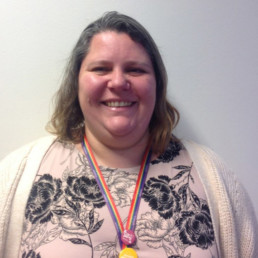
Written by Ninna Makrinov
Organisational Psychologist with over 20 years' experience in Higher Education. Currently the Chair of Governors at Water Mill Primary School.
Someone I respect, who works in education, recently shared the sketch on a social online meeting as one of the best comedy sketches of all time. My immediate reaction was physical discomfort. It felt totally inappropriate. I strongly believe this material is racist and we need open conversations about why people still find it funny. In this blog, I share the reason for my reaction. My aim is not for you to watch the sketch (although I have added a link below), but to share some points that might help a conversation if you ever find yourself in a similar situation.
About the sketch
Gerald the Gorilla is a short sketch that portrays an interview where a white professor talks about his work on communication with a gorilla. The gorilla is a white man dressed in a gorilla suit. The gorilla acts as a human and acts as more intelligent than the professor acts. The professor dismisses every comment the gorilla makes.
My reaction
I suppose it is useful to know I am white; I was born and grew up in Chile. It is also useful to know that I have been learning about anti-racism for the last 4 years. I should also point out that I share the view that we are all racist because we live in a racist society (if you want to know more about this, explore Critical Race Theory). I am not judging the individual who shared this, but the specific choice to have shared this material. I am quite sure I might have had a different reaction to the sketch had I watched at some other point in my life. I take this as a sign we can all learn to be more sensitive to the lived experience of people of colour.
When I watched Gerald the Gorilla now I reacted with disgust and disbelief. My visceral reaction was so strong that my body ached for an hour after the meeting. Even as I was experiencing this, I doubted myself. Was the material inappropriate or was I being racist for seeing the link between a man dressed as a gorilla and a black man?
My immediate actions
I did not call the sketch out as racist during the meeting. I wish I had. But I did not. Instead, I looked shocked on camera. I also sent a message off meeting to a friend who was also there to gauge if I was overreacting. They did not see anything wrong so I downplayed my reaction and was saved by the bell, as I had to leave for another meeting.
After 1 hour, I was still uncomfortable. So I Googled: Is the sketch “Gerald the Gorilla” on “Not the Nine O’clock News” racist? I did not find a response. I learnt a little bit more about the programme. I also learnt that people seemed to agree it was very funny. This did not sit right with me.
I then contacted two other great friends who are involved in anti-racism. They both thought the content was shocking and inappropriate. I am sorry I did this, as I caused them additional pain. They both have mixed race children. But I am also glad I shared it with them, as their conviction gave me the energy to take the next steps.
Why the sketch is racist
Historically, black people have been compared to (non-human) apes. This has been used as an excuse for slavery and genocide. You can find out more in this great article on the Historical Foundations of Race by the National Museum of African American History and Culture. For a more specific example, read the article “The man who was caged in a zoo” in The Guardian.
Black people are still mocked by being called monkeys. The term ‘monkey chanting’ is defined by the Oxford Learner’s Dictionary as “rude and offensive comments shouted at a black player by white people who are watching a contest, especially a football (soccer) match.”
I am focusing my reaction on racism. As this was the most obvious to me. I also noticed homophobic and misogynist comments. I might have missed others.
Being anti-racist
The day after the incident, I took action. I posted a comment on the meeting chat. I said:
“Dear all, anyone who saw my face on camera during one of the skits shared yesterday will know I was shocked. I will not explain further here. However, if you want to know more about what I felt, or just drop me a line or call. I did not raise yesterday as I did not feel comfortable about it, but I have been reflecting since and cannot leave this unsaid.
Also, if anyone else felt there was something inappropriate and would like an ally, an informal chat or even a confidential one, please let me know.“
This has sparked conversations. At various levels. Mostly very personal. I am glad that I felt safe to share. I also wonder if others, particularly people of colour, felt othered or directly offended; I imagine they might also have felt that they could not speak up. I hope the conversations keep going. I still have questions: What conversations do we need? How can we understand the lived experience of others? How can we be allies?
Moving forward – how can we prevent this happening (again)?
To finalise, my top ideas on what we can do to prevent situations like this:
- Make a point of meeting and understanding people who are not like you, whatever ‘what you’ means to you. I have learnt a lot about how judgemental I could be through my friends. Those who don’t have the same level of education, who come from different places, who look different, who disagree with my views.
- Organise conversations about race. For me, participating in the anti-racist pedagogies forum at the University of Warwick has been life changing. I have since also organised an anti-racist book club with my (white) friends. I am thinking of an anti-racist film club at work, it feels more relaxing. For those who work in Further or Higher Education, this Box of Broadcast curated list on Law, Race and Decolonisation by Dr Foluke Adebisi is a great starting point.
- Ensure your organisation’s diversity policy is clear on behavioural expectations, available support and formal procedures for complaints.
- Let people know that you support anti–racism.
- Be an active bystander, I took the step a little later than I would have wanted. I hope next time I will speak on the spot. Think back to occasions where you have acted, what happened? When you did not, what could you to when you experience something similar again?
I thought this video proves my point. You can see a family’s reaction while watching the original sketch. Spoiler alert: they were not shocked. Please beware that the contents might be sensitive (it angered me so much I wrote this blog).
Bitter Sweet Sugar
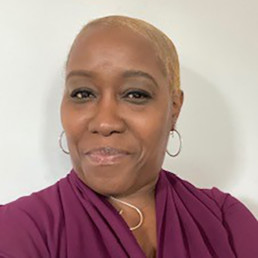
Written by Caroline Verdant
Higher Level Teaching Assistant (HLTA) and Performing Arts Co-Lead. 40+ years of performing arts and dance choreography experience and 20+ years of experience teaching children.
After our London City Airport campaign win, the door opened for my school, St. Antony’s Catholic Primary, to engage with Tate & Lyle, where I found myself sitting at the table with Britain’s most iconic sugar company, based in our borough of Newham.
What immediately comes to mind when you hear the word ‘sugar’?
Sweets? Chocolate? Dessert? Perhaps, a diet.
For me – it’s sugar cane.
At the age of 4, I remember once standing in the middle of a field, watching my dad chop sugar cane. It was my first trip to Barbados, where sucking on fresh and raw, sweet sugar cane is one of my fondest memories. “White Gold” is what they called it; named so because of the great wealth, fame and status it produced for Barbados – the richest of all European colonies throughout the West Indies. However, I also learned many horrendous stories – about the treatment of my forefathers, who worked as slaves on plantations. Slave labour was of course the cheapest way to produce sugar, and turn a profit.
During the 18th century, sugar was a powerful commodity which came at a great human cost. Chained and crammed onto slave ships for journeys that would last anywhere between 6 to 11 weeks, it was expected that some slaves would die during the voyage from Africa. For those that made it to the cane fields of the Caribbean, they would be branded and spend the rest of their days beneath the hot West-Indian sun, planting and harvesting sugar cane, from dawn to dusk. Whilst suffering from malnutrition and tropical diseases, slaves were often whipped for not working hard enough. As the most labour intensive crop, 70% of slaves brought to the ‘New World’ were indentured to producing sugar. For this reason, it’s hard to separate sugar from slavery.
Even though the UK abolished slavery 188 years ago, its legacy still lives on to this day. It was only in 2015 where the debt incurred by compensation to Britain’s slave owners was finally paid off, at cost to the British taxpayer. This is a debt that I have contributed to settling for the past 32 of years of my life; a legacy I was born into, as a British-Bajan woman.
Being the only black person sitting at the table with the leaders in the UK’s sugar industry (since 1878), Tate & Lyle’s commitment towards paying the Real Living Wage speaks volumes to me. Their accreditation is far more than just a positive step towards economic equality, but very much also a step towards racial equality—a step towards reversing a cycle that has lasted for centuries by ensuring every worker is lifted up from in-work-poverty, and given back a sense of dignity.
While our students weren’t directly involved in this campaign, they were recognised by Tate & Lyle’s director and Local Affairs Manager; who both praised the children’s performance of their song ‘Realise’ and their campaign achievements. For my role as a mother and a teacher at St. Antony’s, it is essential that every child learns there are no barriers to what they can pursue or accomplish. By leveraging the power and unity of voices through Community Organising, neither their age, colour, cultural background or socio-economic status can dictate which path in life they choose to take.
Deepening and Demonstrating an Understanding of Diversity - A Governor’s Journey
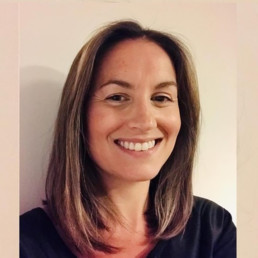
Written by Mair Bull
Former teacher and content writer for BBC Bitesize. Now works at Manchester Metropolitan University in the Curriculum and Rise teams.
When the pandemic hit, I had only been a governor for a few months. Therefore, I felt compelled during the lockdown to take advantage of the many free webinars and training sessions that became available as everyone flocked to zoom and other similar platforms.
I particularly enjoyed the sessions by Hannah Wilson and Diverse Educators – the recordings can be found here if you wish to check them out. I made notes about diversity, inclusion, decolonising the curriculum and specific ideas for governance around diversifying the board and recruitment – to name but a few!
The style of the sessions meant they felt approachable and empowering – normalising the discussions around race, culture, identity and disability. In fact, the sessions made it clear it was strange not to be challenging and questioning the current position within our schools. This was galvanised only a few months later when the world witnessed the death of George Floyd and the subsequent Black Lives Matter campaign.
Alongside these experiences, I was privileged to be part of a conversation about the importance of building a representative Drama curriculum in schools with the Royal Court Theatre, as part of my previous role with Open Drama UK. Subsequently, the network published a really useful document for teachers on building a representative curriculum, which I highly recommend exploring.
During the governors meetings in 2020, I slowly felt more emboldened to ask those questions that Diverse Educators encourages us to pose; I triggered conversations about text choices and our curriculum, about the diversity and inclusion of staff and the recruitment process to our governing board, plus many more. As Hannah has said several times, it is uncomfortable to ask those questions, but they need to be posed. The status quo needs challenging.
In December 2020 we had an Ofsted training session for governors across the Trust, and I was fired a question about the Equality Act in a mock-interview set up. I felt uneasy answering in front of a large number of senior leaders and hugely experienced governors, but I was able to outline what we had achieved in school, the provocations we had discussed, and our plans for the future.
Then in March 2021, I experienced my first real Ofsted visit (virtual) as a governor. In my interview the importance of all that layering of knowledge and small but regular confrontations of the norm, felt acknowledged, important and relevant. I was able to talk about the value of diversity, inclusion, recruitment and curriculum with more confidence and power than I would have been able to a year ago.
Like every school, we still have a long way to go but it is important to acknowledge the evolution and development from where we were before. I am really proud of the lovely school where I am a governor and the crucial progression that has been made on the journey out of special measures. It is important that I am educated and empowered to keep challenging the school to be the best version of itself as it can be. I am only small cog, but we as governors do have the power to enact change and empower others, steadily but positively.
I am really pleased to say that we are now in a position to recruit new governors and are of course, determined to broaden the diversity of the board. If you are interested in a governance role in the Cheshire region please get in touch.
It is about time Initial Teacher Training and Education embraced diversity and inclusion
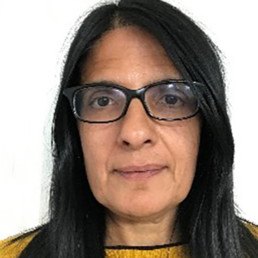
Written by Davinder Dosanjh
Executive Director Leicestershire Secondary SCITT
Thirty-five years in education as a teacher, senior leader, Her Majesty’s Inspector, senior lecturer, teacher educator, I had hoped we would have moved much further forward when we talk about Diversity, Equity and inclusion. I am still not seeing Initial Teacher Training and Education embracing the diverse voices and representing BAME. The decision makers and those on the working groups advising the Department for Education, are the same white faces, from the same organisations.
Policies and initiatives such as the Core Content Framework, Early Careers Framework, have missed opportunities to embed diversity. We are still wedded to the Teachers’ Standards. Teacher Standard 3 and Part 2 of the Teachers’ Standards make no strong statements about embedding diversity, equity and inclusion. The Core Content Framework and Early Career Framework opportunities have merely amplified the Teachers’ Standards into ‘Learn that..’ and ‘Learn how to..’ statements. Examples of systemic racism. These frameworks are a minimum entitlement, so they imply diversity is not part of that prerogative.
Those that train teachers are predominantly, white and middle class. I have been involved with teacher training at a university and a SCITT. Whilst working with both organisations I have asked and sought to be on national bodies which represent these sectors. Never managed to get through the red tape and procedures which maintain the institutional racism. I am just as qualified, have the experience and the track record. Still working out what I am doing wrong or to flip it the other way, what are these national organisations doing which perpetuate these barriers? You have got to be voted on, seconded and then your mates vote you in because you have had the time to network with them. Time to re-examine the criteria for national bodies, working parties, time to have a transformation, give others a voice.
If you have been on a national working group, advisory once, you are to be commended, then pass the baton onto someone else. Insist these groups are diverse and heard at a strategic level.
We need to undertake a more wide-ranging review at the trainee’s journey from pre-application, application, interview, the programme and actual training experience. We need to ask ourselves some critical questions. Then follow the sequence of auditing, action planning, accountability and assessing impact. A starting point are some self-assessment questions below:
Pre-application
Is the marketing diverse and showing a range of positive diverse role-models?
Are we appealing to a diverse range of communities, using a range of networks (Asian radio) not just the traditional career fairs, university, school events?
Application
Who interviews?
Are all interviewers trained beyond safer recruitment, such as Diversity training?
Do we interrogate the data? (those made an offer, rejected, reasons why)
Teacher Educator and Placements
Who are the teacher educators?
Are they diverse?
Can we talent spot and seek out diverse teacher educators?
Are we carefully matching the right teacher educator to the trainee?
How do we deal with any issues of discrimination?
Curriculum
What is the golden thread of Diversity, Equity and Inclusion?
Where is it? What is it?
Who is delivering/facilitating?
Are the role models diverse?
Do we share the mic and encourage allyship?
Evaluation and Quality Assurance
Are the trainee’s voices being heard?
What questions are we asking about Diversity, Equity and Inclusion?
Governance
Is the Steering/Partnership Group diverse?
How can we seek out colleagues from our partner schools to be part of the group?
Is Diversity, Equity and Inclusion a regular agenda item?
I would hope we have moved forward and that any teaching training provider, whether school or university could not ignore a trainee being called a ‘paki’ by pupils like I was. Despite me raising objections, I was told to get on with it, despite this being a regular occurrence. We have policies and procedures to formally report such incidents which were not in place when I undertook my training. More importantly, great communities such as Diverse Educators and BAMEed Network.
I am proud to say the Leicestershire Secondary SCITT has increased the diversity of its cohort from 29% in 2015 to 49% in 2020.
Education to End Violence Against Women and Girls
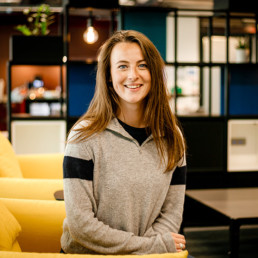
Written by Natasha Eeles
Natasha is the Founder of Bold Voices. She is a passionate advocate for the rights of women and marginalised genders.
The world young people are growing up in today is changing rapidly, bringing with it a need to think more broadly about the education young people require. In the past week the UK has had its eyes opened to the urgent need to challenge the seemingly harmless attitudes towards women and girls that contribute to a culture within which gender based violence is normalised and even accepted, a culture that unfortunately schools are not exempt from.
On Wednesday 3rd March Sarah Everad went missing while walking home in Clapham, south London. She had taken a well-lit, public route, she had called her boyfriend to let him know when she’d be home, she was wearing bright clothes and trainers. She followed all the unspoken ‘rules’ that women and girls follow to keep themselves safe, but it wasn’t enough. Since that day, Sarah’s kidnap and murder has sparked an outpouring of grief and exhaustion from women and marginalised genders across the country who are tired of being harassed, objectified and assaulted with little to no accountability for the perpetrators. The media coverage of Sarah Everad’s case coincided with the release of a UN Women UK report finding that 97% of young women aged 18-24 have experienced sexual harassment.
Unlike the #MeToo movement of 2017, the moment of the past week has not left young people behind. The Instagram account Everyone’s Invited has gained unprecedented traction, with thousands of school pupils and university students submitting their testimonies of harassment, abuse, assault and speaking to the rape culture that pervades within our educational institutions. As teachers and parents it can be difficult to know what to do in the wake of such a horrific outpouring from young people, how to keep them safe. But if this last week has taught us anything, it’s that to bring up a new generation who do not continue to perpetuate a culture of violence against women and girls is a number one priority.
HOW DO WE DO THIS?
THE ANSWER: EDUCATION.
Keeping our young people safe and healthy means ensuring they have the right spaces for learning about and discussing these issues. We appreciate that terms such as ‘gender based’ or ‘sexual’ violence can be challenging and daunting, or even extreme, particularly when it comes to discussions about pupils. But, as this past week has shown, young people are not protected from this violence and so we must ensure we move towards a preventative as opposed to reactionary approach.
At Bold Voices we’ve been delivering education on gender inequality and gender based violence to young people in schools and universities for three years. We’ve worked with over 2000 people through talks and workshops. We are a youth-led team who identify closely with the experiences young people face and understand the many influences that shape their beliefs and outlook on the world. Our education is designed to empower young people, both boys and girls, to see themselves as agents of change. We do this by approaching topics that are often uncomfortable and emotive with an objective, critical lens. In particular, our education focuses on challenging key attitudes and beliefs such as the perpetuation of gender stereotypes, dismissal of casual sexism as harmless and use of language that degrades and objectifies women.
This education is not a ‘nice-to-have’ addition to the curriculum. It is urgent, critical education required to keep young people safe and to disrupt the patterns of harassment, abuse and violence that have pervaded the lives of women and girls for centuries. Bold Voices are here to support you in becoming better equipped to have these conversations with your pupils, your children, and other educators and parents. As experts in delivering this critical education we have all the knowledge and expertise you need – resources, talks, workshops and a community where young people themselves can learn from each other and find support from others on this journey.
HOW CAN WE HELP?
Resources: Activities for the classroom, toolkits, blog posts and lesson plans for discussing gender inequality and gender based violence. Sign up to be the first to hear about new resources we create through our newsletter.
Talks and Workshops: Discover our talks and workshops, led by experienced facilitators and delivering on key topics relating to gender inequality and gender based violence including:
- Thinking Big About Gender Inequality: From Misogyny to Gendered Violence
- Preparing Our Teens for the Unspoken at University: Cultures of Gendered Violence within UK Universities
- Online Sexual Harassment: How Gendered Violence Adapts to New Environments
Delivering Gendered Violence Education: Sign up for early access to our self-paced online course for teachers supporting you to deliver this critical education.
Doing the Inner Work, to do the Outer Work

Written by Ellie Lister
Ellie leads the Big Leadership Adventure programme at Big Education. A multi-academy trust and social enterprise whose mission is to rethink and reshape education.
We have spent the weekend working with our 2020 Big Leadership Adventure group. It is always an energising and uplifting experience – as we learn together as part of their journey as leaders who believe in a ‘big’ education that can change the system. The commitment, passion and dedication of this group of 30 leaders can not be overstated. We salute you all!
The overall theme of the two days was Design Thinking – how can we re-imagine practices by using a range of tools which get us to understand problems differently and then go about solving them in new ways? Inspired by the work of Ideo, this powerful methodology has much to offer us in the sector.
As pupils return from lockdown, many more schools are looking to do things differently. Our leaders are all working on Innovation Projects that harness the learnings from lockdown, to help us to rethink and reshape education.
We know that we cannot achieve ‘a big education’ unless our system values and embodies diversity, equity and inclusion. Having some of the sector-leading experts and trainers as part of the cohort gave an incredible opportunity to draw on their expertise and really explore how this is explicitly linked to our work on the programme. We explored the themes of user-centred design, really actually listening to what those with protected characteristics are saying, and creating the spaces where those conversations can happen.
Adrian McLean and Hannah Wilson skillfully created a safe space for participants to learn, challenge and understand. It was so powerful to start with checking our knowledge of the equalities act – what are the 9 protected characteristics and how many can you name? Between the group we got there – but I for one would not have managed to get all 9 on my own.
We were challenged to think about which of these are visible in our organisations. Where are there explicit practices in our organisation in supporting or addressing these protected characteristics? It was clear that for so many of us, there is not an equal balance of focus on each of those within our organisations. There were some fascinating reflections on the ‘emotional tax’ associated with some of the invisible characteristics, for example disabilities that are non visible. Some areas of practice are much stronger than others, and it was powerful and, at times, very uncomfortable to delve into why this is the case. It was also fascinating to reflect on the difference between what is written in policies and what is actually happening which again can expose some uncomfortable truths. Adrian and Hanah recognised this and urged us to “get comfortable with being uncomfortable.” These reflections and conversations need to happen.
A large focus was on encouraging us to look inwards first. “Doing the inner work, to do the outer work.” This means we need to look personally inwards and consider our own perspectives, privilege and biases before we can meaningfully bring that conversation into our wider organisations. We used the Wheel of Power and Privilege as a tool to consider our own identity and experience and as a way to consider what might be going on for others.
We made an interesting link with our concept of ‘making entry’ – the idea that an essential prerequisite of meaningful work together in a trusting relationship, and that this is achieved only through self disclosure and sharing information about ourselves. It raises many questions about what we choose to disclose – how much, about what and to whom. What is clear is that if we do not tell our own story, others will make one up for us. Some of that story is based on what they can see – the visible characteristics – and some about assumptions they make. Whether we choose to inform them further is our choice.
What is also clear, however, is how powerful it is when people are open about aspects of themselves. We heard stories of the impact of staff sharing their sexual orientation with students and the transformation in attitudes this can enable, as well as safe spaces where students were empowered to be openly vulnerable and really challenge a culture of toxic masculinity.
The group all made pledges for actions to undertake and we will hold ourselves accountable for these commitments.
Day 2 shifted us into some practical action in developing our leadership skills – what we call developing ourselves as a ‘leadership artefact’. We passionately believe that being able to clearly and effectively deliver a ‘stump’ speech is a tool in the changemaker’s tool kit. The ability to convince others, create a compelling narrative and inspire action is essential. Our leaders revisited their stump speech they had delivered as part of the application process, redrafted it in light of the philosophy of education module they have completed, and delivered it to colleagues in small groups.
It was an incredible experience, for both those speaking and those listening and feeding back. Drawing on the 4 oracy strands as a framework for listening and observing, each leader then received detailed feedback about the impact their speech had had on others in the group. We were all reminded again of the power of feedback – such an important part of developing our self awareness and understanding the effect our behaviour has on others. We referenced the ever useful Johari’s window model as a framework where we consider what is known and unknown to self and others.
The energy, commitment and positivity from this group of school leaders, after the first week back at school, was quite a joy to experience. The power of the cohort and drawing on expertise and support from the group could not have been stronger. It is a pleasure to work with this group of leaders and the future feels a little brighter in their presence.
Are you passionate about the need for a holistic education for young people? Applications are open for the Big Leadership Adventure – closing at midnight on the 3rd of May: https://bigeducation.org/bla/
Gender is “wibbly-wobbly” and “timey-wimey”, and gloriously so
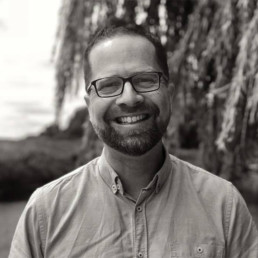
Written by Matthew Savage
Former international school Principal, proud father of two transgender adult children, Associate Consultant with LSC Education, and founder of #themonalisaeffect.
David Tennant’s regeneration of the Doctor, in exploring the conceptual complexity of time, explained to Sally Sparrow in 2007’s ‘Blink’, “People assume that time is a strict progression of cause to effect, but actually from a non-linear, non-subjective viewpoint, it’s more like a big ball of wibbly-wobbly, timey-wimey stuff.”
As the father of two transgender young adults, and a school leader of two decades who has worked with and supported hundreds of children and young people questioning, openly or indirectly, their gender or sexuality, I have increasingly learned that gender identity and expression, sex and sexuality, are no less “wibbly-wobbly” or “timey-wimey”. Indeed, the more we back them into a binary backwater, the less we will understand, respect and celebrate the rich diversity of the Genderbread Person who makes us who we were, who we are and who we will be.
My youngest child, Jack – born AFAB in 2001, identifying as queer when adolescence first hit, as dysphoric shortly afterwards, and as transgender when the adolescent rollercoaster was well underway – at 19, now counts his trans identity as but a tiny fraction of who he is. To him, he is an artist first and foremost; a gay man; a recipe non-conforming chef; and many other identities besides, like all of us. But just as he happens to be a trans male, he obstinately and understandably ticked “Male” as his sex on the recent UK census, even though his first gender reassignment surgery is still a couple of months away.
My eldest child, however, born AMAB in 2000, has recently come out publicly as trans-feminine non-binary, and, about a year previously, as “obnoxiously bisexual”. In doing so, she has embarked on a journey both of discovery and also of worn, lived and breathed gender identity and expression. She is as uncertain about her precise route and destination as she is certain both of her pronouns (she/her, or, at a push, they/them) and also of her name, Phoebe. With her bravery has grown yet further my awe and humility, and, with her wisdom, so also my desire to learn, and to continue learning.
Just as Jack has now acquired the toxicity of male privilege and the pungency of male bathrooms, so has Phoebe gained (bizarrely conditional) access to misogyny, gender inequality and an increasingly unsafe society. Both are emerging into an adult world whose hostile environment permits so many of those who know nothing and represent no one to speak loudest and most hatefully. Much as I love both my children unconditionally (what is conditional love, after all, but something hateful dressed in love’s robes?) and beyond words (even though, as an English graduate and teacher, and wannabe writer, words are my thing!), I fear for their futures.
As a result, I want to do everything in my power, heaping every ‘Teaspoon of Change’ and feverishly flying Maathai’s ‘hummingbird’, to help reshape our world, one which they have the bravery and beauty, but not the obligation, to transform, into a nurturing and safe space: for Jack, for Phoebe, and for every transgender, non-binary and gender non-conforming child, young person and adult in this rainbow realm.
In a few days, I will be delivering a presentation at ECIS’ “Diversity and Belonging” Leadership Conference 2021, entitled, “A Principal’s Journey: what I learned about inclusive school leadership from my transgender son”. The abstract argues that, “to identify as LGBTQ+ whilst studying at an international school can present a unique set of challenges, rendering the student especially vulnerable to mental ill health, poor wellbeing and disrupted learning”.
And I will aim candidly to share my experience as the proud father of a gay, transgender child, and how it has taught me to be a truly inclusive leader. But, in reality, this is Jack’s story, and it needs to be told. I am not a religious person (Jack and I both entered “Dudeism” on that very same census!), but Phoebe and Jack are miracles; and miracles deserve to be shared, as far and wide as possible. If I could reach the Doctor’s next regeneration, I feel confident they would share it wherever the Tardis can travel.
As Educators, What Do We Owe to Our Children?
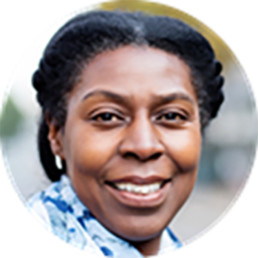
Written by Rosie Peters
Rosie Peters has been in education for over 20 years and is currently working as a Co-Head of School. She is passionate about improving children’s life chances and strongly believes in the power of mentoring and representation.
As educators, what do we owe to our children? Surely it should be an education where each and every child feels represented within the education system and the curriculum.
An early-years setting that says welcome, I hear you and I see you, instantly communicates to the child that they belong. In turn the child recognises and sees familiarity within the physical environment, the faces they encounter, the words that they hear.
For a child that has little English, a simple hello in their first language can make a world of difference. Books opened and read aloud, bridge reality with the imaginary with ease because someone has taken the time to check there is true representation of the children entrusted to them as they embark on what should be a wonderful adventure of education, full of excitement and discovery.
We want all our young people, regardless of colour, class religion, gender or ability to experience a shaping of belonging and identity that is positive, clear and authentic. We are responsible for shaping their views and attitudes of self and others.
Pupils should be made aware of the true contributions made by their ancestors and the ancestors of their diverse peers.
Starting with a Primary History curriculum that gives the full story by bringing back the erased and forgotten: the Aurelian Moors who were Roman soldiers based in Britain; the Ivory Bangled Lady; Septimius Severus a Roman Emperor. ‘We can be certain that people from Africa lived here more than 1,700 years ago.’ (Black and British, a Short Essential History; David Olusoga 2020.)
In history wonderful websites such as ‘Another History is Possible’ or ‘Meanwhile Elsewhere’, gives insight to other equally important global events that took place at the same time as the eras covered in the national curriculum.
A curriculum that allows different perspectives to be taught – from the point of view of, for example, race, gender, class, religion, disability and age, would give a strong message that diversity is not only accepted but essential.
A curriculum that develops and champions critical thinkers who are able to question, to ask why, is essential. Why, for example, during the VE Day celebrations in the summer of 2020 Black and Asians soldiers were barely mentioned. Why, in certain professions, there is little or no representation from non-white communities.
Let’s empower young people by ensuring that the curriculum and experiences they encounter are reflected through the role models we choose, the places we focus on and the cultural connections we celebrate. There is no subject in which diversity and inclusion cannot be embedded and made the norm. With a bit of time and effort it is amazing what can be achieved.
Educators need to be supported and provided with CPD to enable them to become ‘racially literate’ and able to talk openly about racism; in other, words not shy away from uncomfortable discussions. They need to be aware that terminology is forever changing and that it is better to ask someone what they prefer to be called: Black, Black British, Black Caribbean, Roma or Romani … rather than avoid it.
Teachers that go all out to make sure that someone’s name is pronounced correctly show children that their name is important; it is part of their history and culture. ‘It is not the first mispronunciation that stays with the student, it is the failure to learn how the name is pronounced and then the continued incorrect pronunciation on the second, third, fourth attempt. The unfortunate consequence, witnessed first-hand, is that students with names from different backgrounds start to hide their names. Their pride in their own heritage is eroded. (Diversity in School, Bennie Kara 2021)
We all have the responsibility to engineer change. Lack of knowledge of different people causes a lack of trust, fear, conflict and animosity. Educators need to be instrumental in changing society in a meaningful way.
The pandemic has highlighted the inequalities that exist in our society and the mistrust that some communities have in our institutions such as the justice system, the police and the medical profession. This is built on decades of negative experiences and unfair treatment endured by marginalised communities. One only has to look at key data sighted in the Office of National Statistics 2017/18:
- Fifty-five percent of Black Caribbean pupils achieved the expected standard in reading, writing & maths (The lowest percentage out of all ethnic groups after White Irish Traveller and Gypsy Roma pupils.)
- Three times more likely to be permanently excluded than their white peers.
- Forty-five percent of Black Caribbean live in rented social housing, compared with 16% White British (2016/17)
- Black Caribbean women are five times more likely to die in childbirth than their British counterparts.
This lack of trust can have a devastating impact on minority groups. A prime example can be seen in the low rate of uptake for the COVID-19 vaccine amongst the Black and Asian communities. This surely has to change.
We need to come together and work for the common good. It should not be the responsibility of one community, usually the community being most affected. It has to be the responsibility of everyone; the majority: white allies, working alongside the minority.
Wouldn’t it be wonderful to produce children who have a full sense of belonging; knowing where they have come from and where they are going and, in equal measure, hold the same knowledge of their diverse peers.
Imagine if this were the reality, there would be less racism, prejudice, unconscious bias and the inequalities we see today.
Agency would be for all and not the chosen.
The decision makers of tomorrow would mirror the richness of society’s diversity and therefore decisions on a local and global scale would recognise and address inequality and bring equity where required.
Some educators have already started this journey; a journey we should all embrace in order to bring into being a more equal society for our children, the leaders of tomorrow.
The green shoots of change can already be seen. Let’s hope they fully blossom.
Teaching is a great profession especially when we recognise that education is a powerful vehicle for creating better human beings.

